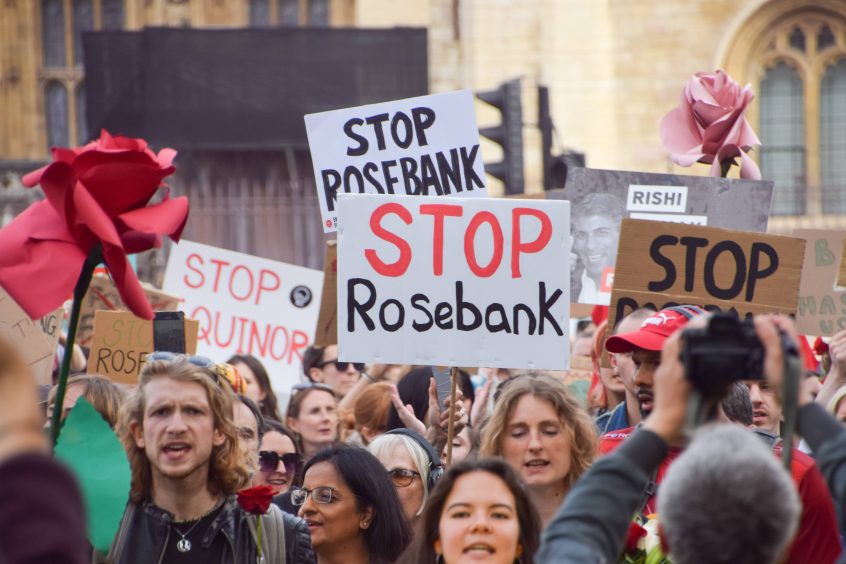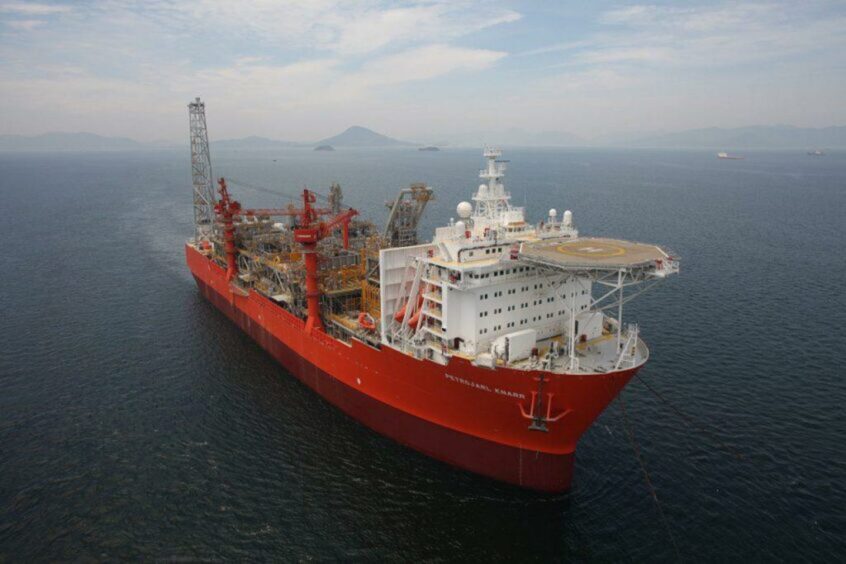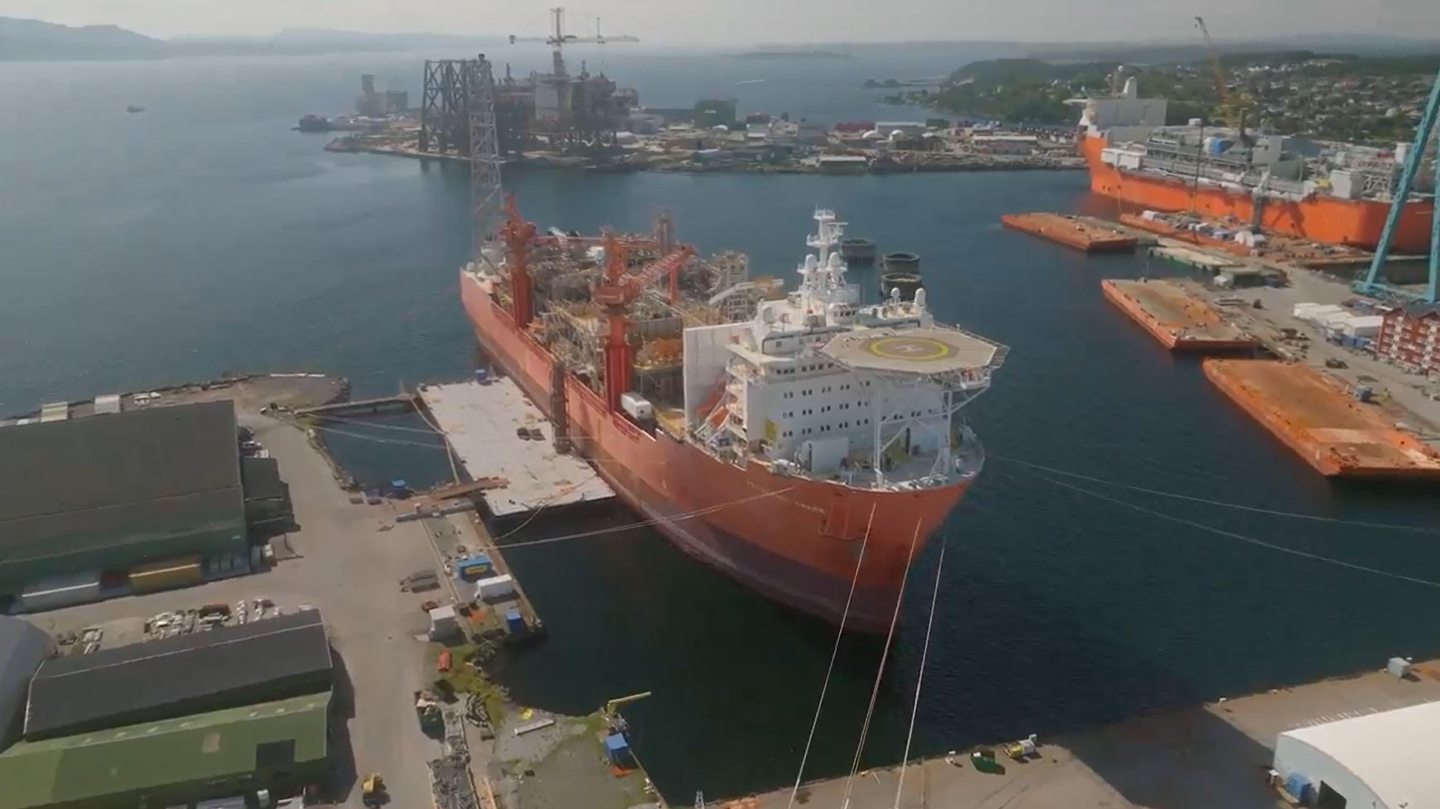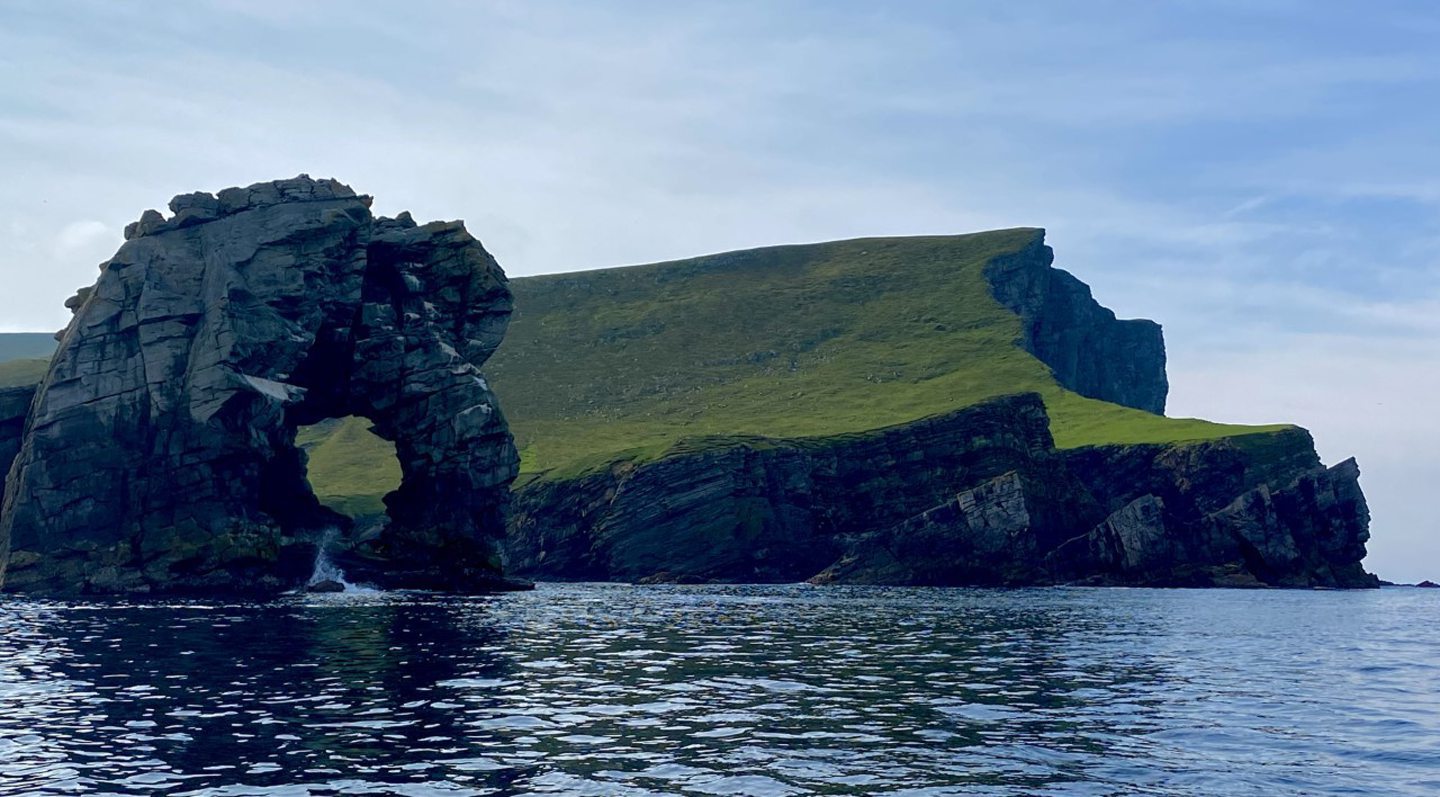
Environmental campaign groups Uplift and Greenpeace UK will launch separate legal challenges against the decision to approve the Rosebank oil field development.
Both campaign groups will ask the Court of Session in Edinburgh for a review of the approval granted by the Energy Secretary and the North Sea Transition Authority (NSTA) regulator.
It will then be up to the Court of Session to decide whether to grant permission for a full hearing of the case.
A UK government spokesperson told Energy Voice it will “robustly defend” its decision to approve Rosebank.
The Rosebank field, located 80 miles northwest of Shetland, is the UK’s largest undeveloped oil reserve.
Norwegian state-owned Equinor received approval for its plans to extract 300 million barrels of oil from Rosebank using the Knarr FPSO in September.
UK offshore operator Ithaca Energy holds a 20% stake in the Rosebank project.
‘Public safety over profit’
In a joint statement Uplift and Greenpeace said they will argue the decision to approve Rosebank was unlawful because it ignores the impact of downstream emissions and is not compatible with the UK government’s net zero and climate targets.
The groups also said the Rosebank plans will damage marine life in a protected area of the North Sea.
Uplift executive director Tessa Khan said its legal challenge is “about forcing our government to put the public’s safety first, over their need to profit”.
“If Rosebank goes ahead, the UK will blow its own plans to stay within safe climate limits. It’s that simple,” Ms Khan said.
“If the government disagrees, it needs to provide evidence and prove it in court.
“The regulator (NSTA) also needs to be open about its reasons for approving a huge oil field when we’re facing a worsening climate crisis.”
UK ‘failing’ on climate
Ms Khan said the Rosebank approval and the results of this year’s COP28 summit show the UK government is failing to protect the world from climate change.
“Rosebank is getting billions in tax breaks, but it will do nothing to lower bills or boost UK energy security as it’s mostly oil for export,” she said.
“People have had enough of oil and gas companies getting their way all the time.”
While Equinor will not receive direct subsidies from the UK government to develop Rosebank, the Norwegian firm has pointed to various tax offsets for expenses and investment allowances available to it.
At this stage it is unclear to what extent Equinor will make use of these offsets or allowances in relation to Rosebank.
A 91% investment allowance is available to Equinor under the Energy Profits Levy, which will end in March 2028.
‘Rigged climate assessment’
Greenpeace UK co-executive director Areeba Hamid said the government used a “rigged climate assessment” to “deliberately ignore” the impact of Rosebank’s downstream emissions.
“Rosebank’s development was approved under the false claim that it is entirely compatible with the UK’s legally binding climate commitments. This is a lie,” Ms Hamid said.
“It’s like building a bomb and claiming it’s completely harmless so long as no one detonates it.”
The decision to approve Rosebank was proof the UK government is “putting the profits of oil and gas companies over the British public and the planet”, Ms Hamid said.
“Rosebank’s development simply cannot go ahead. And we’re taking the government to court to make sure that it doesn’t.”
Rosebank approval ‘irrational and unlawful’
In its application, Uplift claims the decision to approve Rosebank is “irrational and unlawful” because the Energy Secretary Claire Coutinho failed to show how it is compatible with legally binding net zero targets.
Uplift will argue Rosebank’s approval will make it impossible to achieve the North Sea Transition Deal (NTSD) target of halving CO2 emissions from the sector by 2030.
Equinor has said Rosebank could be producing through to the year 2051 but, due to a process of electrification, its emissions will count for 1.6% of the overall UK offshore sector.
In addition, Uplift will argue the NSTA approval was “procedurally unfair and irrational” because it gave no reasons for its decision and failed to explain how it was consistent with its duty to assist the Energy Secretary in meeting the net zero target.
The case also claims the government failed to adequately asses the impact of Rosebank on marine life, including the protected Faroe-Shetland Sponge Belt.
Laura Tainsh, the head of environment for law firm Davidson Chalmers Stewart which filed the Uplift case, said it is a “critically important challenge that, for the first time, scrutinises the oil and gas industry’s contribution to the UK’s climate targets as embodied in the North Sea Transition Deal”.
Rosebank environmental assessment ‘invalid’
A separate application filed on behalf of Greenpeace UK will focus on two of the areas included in Uplift’s court submission – downstream emissions and marine protected areas.
The case will argue the Energy Secretary’s decision to approve Rosebank is invalid because it relied on an environmental impact assessment (EIA) which deliberately did not consider downstream emissions.
Greenpeace argues the consent decision is invalid because “in excluding downstream emissions” the EIA did not meet the requirement to “direct and indirect effects of the use of the extracted hydrocarbons on human health, the environment, and climate change”.
The campaign also said the reason the Energy Secretary gave for excluding consideration of downstream emissions was “irrational”.
In addition, Greenpeace will make arguments surrounding the possible impact to marine life in the Faroe-Shetland Sponge Belt and Seas off Foula protected areas.
Greenpeace said drilling and laying subsea cables “will destroy habitats for sponges and other species living on the seabed while oil contamination would affect whales and wild birds”.
In its Rosebank EIA, Equinor said that although the pipeline will pass through a marine protected area, surveys done along the proposed route “found no significant deep-sea sponge aggregations” and the footprint is small compared to the entire size of the area.
The assessment also said while a worst case scenario of a large potential oil spill from Rosebank “could have a long-term effect” on seabird populations with eventual recovery, the probability of this occurring is “very low”.
Government ‘strongly rejects’ claims
In response to the Greenpeace and Uplift announcement, a government spokesperson told Energy Voice: “We strongly reject these claims and will robustly defend any such challenge.
“The UK is a world leader in reaching net zero – cutting emissions faster than any other major economy – and as the independent Climate Change Committee recognises, we will still need oil and gas as part of our energy mix.
“We will continue to back the UK’s oil and gas industry, which underpins our energy security, supports up to 200,000 jobs, and will provide around £50 billion in tax revenue over the next 5 years – helping fund our transition to net zero.”
Meanwhile, a spokesperson for the NSTA said: “We do not comment on ongoing legal issues.”
Downstream emissions
The outcome of any legal challenge to Rosebank could depend on whether courts will consider the downstream impacts of oil and gas developments.
Energy law experts are keeping an eye on the Finch v Surrey County Council currently before the Supreme Court, which could set a legal precedent on the consideration of downstream emissions.
The case concerns the consideration of downstream emissions as part of planning permission for the extension of an onshore oil well site.
Another Greenpeace challenge against Shell’s Jackdaw development is currently on hold pending the outcome of the Finch case.
While the impact of that case on the oil and gas industry remains to be seen, historically the UK legal system makes it “nearly impossible” to challenge new oil and gas developments on climate grounds.
Greenpeace and Uplift lost a legal challenge against a major new North Sea oil and gas licensing round in October, though they have vowed to appeal the decision.
Recommended for you


 © Supplied by Teekay
© Supplied by Teekay © Andrea Domeniconi
© Andrea Domeniconi © Supplied by Equinor
© Supplied by Equinor © Supplied by Altera Infrastructur
© Supplied by Altera Infrastructur © Supplied by Chloe Irvine
© Supplied by Chloe Irvine © LinkedIn via Equinor
© LinkedIn via Equinor